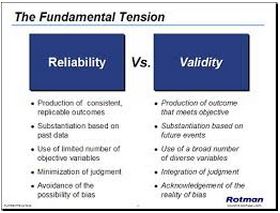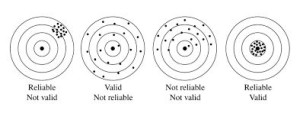What does the Reliability and Validity of Test Scores Mean?
Test scores are evaluated based on their reliability and validity. It is important for parents to understand the meaning of the numbers and scores that are included in the results of their child’s standardized neuropsychological assessment. Remember that every score, percentile, and confidence interval (to be discussed below) are derived from the statistical manual that comes with every standardized test. Hence the term standardization, so we know that the scores of every child of every age are being held to the same statistical evaluation, and that their scores are NOT being subjectively interpreted.
Test scores are also evaluated as to their reliability: the consistency of what we are measuring. A measure is said to have a high reliability if it produces similar results under consistent conditions. Some measures are more reliable than others, because the tools we use to measure are better, and there is more consistency in what we are measuring. For example, measurements of height and weight are often extremely reliable. However, measuring blood pressure and processing speed might be less reliable.
Test scores are also evaluated as to their validity: the degree to which a measurement is meaningful and corresponds accurately to the real world. In other words, the measures need to fit what we are measuring. So, a valid measure of reading skills should assess real world reading ability, rather than the capability to retell a story that one has heard. For neuropsychological testing, this means that our interpretation of tests should correspond with what they are actually measuring.

Visit the South County Child & Family Consultants website for more great articles!
